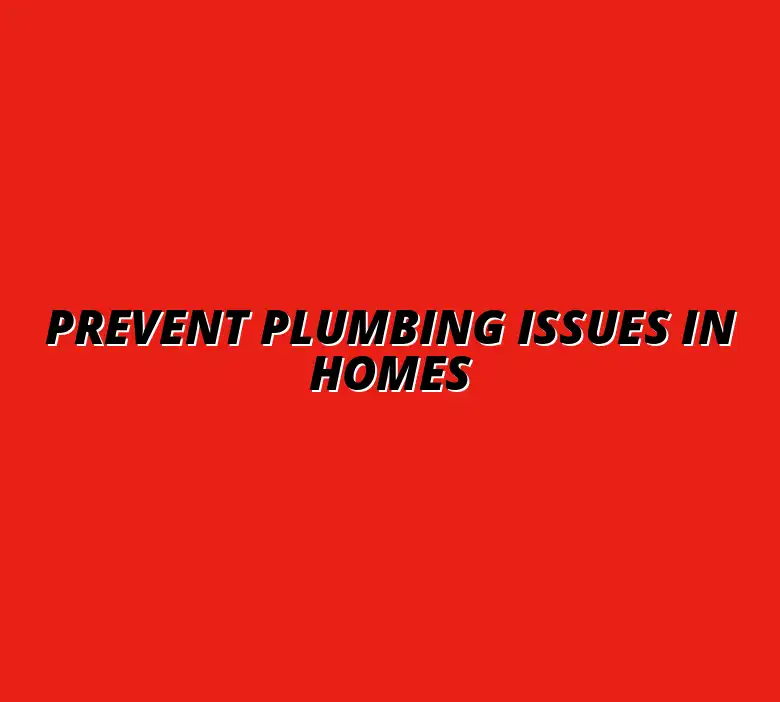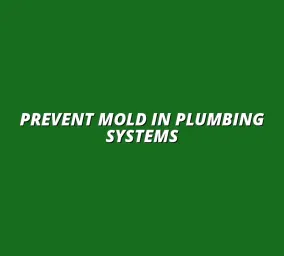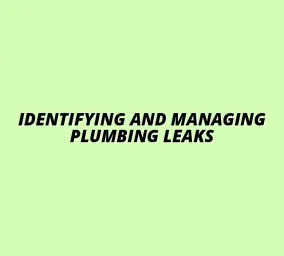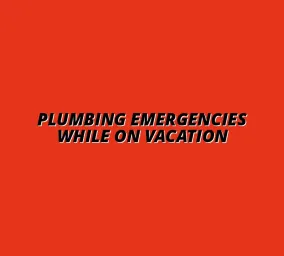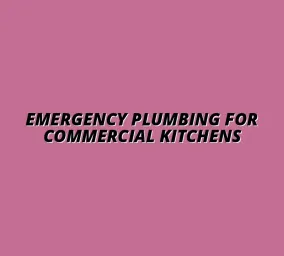Prevent Plumbing Issues in Homes
Understanding Plumbing Emergencies in Large Households
Living in a large household can be a wonderful experience, but it also comes with its own set of challenges. One of the most pressing issues that families face is plumbing emergencies. Understanding what constitutes a plumbing emergency and recognizing the common issues that arise can help mitigate stress and prevent major disasters.
In essence, a plumbing emergency is any situation that poses a risk to the functionality of your plumbing system or the safety of your home. These emergencies often require immediate attention to avoid extensive damage and costly repairs. By identifying the types and causes of plumbing emergencies, households can be better prepared to handle them when they arise. For example, knowing the urgent plumbing emergency warning signs can make all the difference.
Defining Plumbing Emergencies: Types and Causes
Plumbing emergencies can manifest in various forms, and knowing them can help you act quickly. Here are some common types:
- Burst Pipes: Pipes that burst can cause significant flooding and damage to your home.
- Overflowing Toilets: These can lead to unsanitary conditions and require immediate action.
- Severe Leaks: Even a small leak can escalate into a major issue if left unaddressed.
- Blocked Drains: Clogs can disrupt water flow and lead to backups. Learning how to prevent bathroom drain clogging year-round is a great preventative measure.
Understanding the causes behind these emergencies is equally important. Common causes include:
- Wear and Tear: Aging plumbing systems often lead to unexpected failures.
- Extreme Weather: Freezing temperatures can cause pipes to burst.
- Improper Use: Flushing non-biodegradable items can lead to blockages.
Common Plumbing Issues in Large Households
Large households experience unique plumbing challenges due to increased usage. Some of the most common issues include:
- High Water Demand: More people means more water usage, putting stress on plumbing systems.
- Multiple Bathrooms: Having several bathrooms can lead to simultaneous plumbing issues.
- Increased Wear on Fixtures: More usage can result in quicker deterioration of plumbing fixtures.
These issues can lead to emergencies if not managed properly. Regular maintenance and awareness are key to avoiding significant plumbing problems. Regular maintenance can significantly reduce the risk of emergencies.
Factors Leading to Plumbing Disruptions
Several factors can contribute to plumbing disruptions in large families. Key issues to consider include:
- Neglected Maintenance: Lack of routine checks can allow minor issues to develop into major problems.
- Inexperienced Use: Not everyone in the household may be aware of plumbing best practices.
- Environmental Factors: Tree roots and soil shifts can impact underground pipes. Learn how to prevent tree roots from damaging pipes to avoid costly repairs.
By understanding these factors, families can take steps to reduce the risk of plumbing emergencies, ensuring a smooth experience in their homes. Regular maintenance, as discussed in our guide to maintaining your plumbing year-round, is crucial.
Proactive Measures to Prevent Plumbing Emergencies
Preventing plumbing emergencies is all about being proactive. By taking the right measures and creating a culture of awareness in your home, you can significantly reduce the likelihood of plumbing issues.
Simple actions, such as regular maintenance and educating your family about plumbing practices, can save you from the headache of emergency repairs down the line. Let's explore some effective strategies to keep your plumbing system running smoothly.
Effective Strategies for Managing Plumbing Systems
Managing plumbing systems in large households can be challenging, but with the right strategies, it can be a breeze! Embracing new technologies and creating organized plans helps keep everything running smoothly. Let's explore some effective ways to streamline plumbing management.
One of the most exciting advancements is the use of smart technology. These tools not only make management easier but also help in early detection of issues, saving you time and money down the line. By utilizing smart devices, homeowners can take control of their plumbing systems in a way that was once unimaginable. Regular water heater maintenance, as detailed in our water heater maintenance checklist, is also vital.
Utilizing Smart Technology for Plumbing Management
Smart technology has revolutionized how we manage our homes, including our plumbing systems. By integrating smart devices, you can monitor and adjust your plumbing more effectively. Here are some notable advantages:
- Leak Detection: Smart water leak detectors alert you immediately if a leak occurs, often before it becomes a major issue.
- Water Usage Monitoring: These devices track your water usage, helping you identify areas where you can save.
- Remote Management: Control your plumbing systems from your smartphone or tablet, giving you peace of mind when you’re away.
Advantages of Smart Water Leak Detectors
Smart water leak detectors have become indispensable tools for homeowners. They not only provide timely alerts but also prevent extensive damage from undetected leaks. Here are some key benefits:
- Detect leaks in real-time, so you can act quickly.
- Some models can monitor temperature, helping prevent frozen pipes.
- Alerts can be sent straight to your phone for immediate action.
With these features, the risk of costly repairs diminishes significantly!
How Smart Thermostats Can Aid Plumbing Efficiency
Smart thermostats not only keep your home comfortable but also play a vital role in plumbing efficiency. They can help manage your heating systems more effectively, ensuring hot water is readily available when you need it. Consider the following:
- Energy Savings: Adjust your heating based on usage patterns to save energy.
- Quick Adjustments: Control your heating remotely, ensuring your home is always ready for your arrival.
- Integration: Many smart thermostats can work with other smart home devices for enhanced efficiency.
Establishing a Clear Emergency Plan for Plumbing Issues
Having a clear plan for plumbing emergencies can save you a lot of stress. When everyone in the household knows what to do and who to contact, it can make a big difference. So, let’s look at how you can create an effective emergency plan!
Start by mapping out essential contact information and creating a step-by-step guide for your household. This ensures that everyone is prepared and knows how to respond during a plumbing crisis. Being proactive will save you from potential chaos! If you need a plumber in Birmingham, specifically Brandwood End, check out this resource for plumbers in Brandwood End, Birmingham.
Creating a Contact List for Local Plumbers
When plumbing emergencies arise, having a reliable contact list is crucial. Make sure to have the numbers of local plumbers easily accessible. Here’s how to create an effective contact list:
- Include multiple plumbers in case one is unavailable.
- Check reviews and ratings to ensure quality service.
- List emergency services that are available 24/7.
Outlining Steps to Take During a Plumbing Emergency
In the event of a plumbing emergency, knowing what to do can save you from further damage. Here’s a quick rundown of steps to take:
- Shut Off the Water: Immediately turn off the main water valve to prevent flooding.
- Assess the Situation: Determine the source of the problem if it’s safe to do so.
- Contact a Plumber: Use your contact list to call a trusted plumber.
- Take Photos: Document the situation for insurance purposes.
Addressing Frequently Asked Questions about Plumbing Emergencies
It’s natural to have questions about plumbing emergencies, especially in large households. Knowing how to respond can make a significant difference. Let’s tackle some of the most common inquiries!
Being knowledgeable about plumbing issues can empower you to take action when needed. So, let’s dive into what you should know about handling plumbing situations effectively.
What Should You Do in Case of a Plumbing Emergency?
In a plumbing emergency, immediate action is crucial. Here are the steps you should follow to ensure safety and minimize damage:
- Shut off the water supply to the affected area.
- Clear the area of any belongings that could be damaged.
- Contact a professional plumber as soon as possible.
Immediate Actions to Take
When faced with a plumbing emergency, acting quickly is key! Here’s a quick checklist of immediate actions to consider:
- Turn off the main water valve.
- Use towels or buckets to contain leaks.
- Check for affected electrical appliances and turn them off.
When to Call a Professional
Knowing when to call a professional can save you time and effort. Here are some situations where you should definitely reach out for help:
- Severe leaks that you cannot control.
- Blocked drains that don’t clear with basic methods.
- Signs of water damage in your walls or ceilings.
How Often Should Plumbing Systems Be Inspected?
Regular inspections are crucial for maintaining plumbing systems. The frequency can vary based on household size and usage. Understanding the right timing can help prevent emergencies!
By keeping an eye on your plumbing, you can avoid many costly repairs. Let’s explore how often you should consider inspections.
Frequency Recommendations Based on Household Size
Generally, homeowners should aim for regular inspections to ensure everything is functioning correctly. Here’s a quick guideline:
- For small households: Every 1-2 years.
- For medium-sized households: Every year.
- For large households: Every six months.
Signs That Indicate More Frequent Inspections are Needed
Sometimes, certain signs may indicate that you need inspections more frequently. Pay attention to these warning signs:
- Frequent clogs or slow drains.
- Unusual noises from pipes.
- Visible signs of water damage.
If you notice any of these issues, it’s wise to schedule an inspection without delay!
Final Thoughts on Reducing Plumbing Emergencies
Reducing plumbing emergencies can be achieved through awareness and regular maintenance. By understanding the potential issues and implementing preventive measures, you can safeguard your home. Let’s summarize the key steps!
Engaging with plumbing professionals and being aware of your plumbing systems will lead to a more efficient and safe household. It’s all about taking proactive measures!
Summarizing Key Preventative Steps
To minimize plumbing emergencies, here are some essential preventative steps to consider:
- Schedule regular inspections and maintenance checks.
- Educate household members on plumbing best practices.
- Monitor for warning signs and act quickly.
Highlighting the Importance of Awareness and Maintenance
Awareness and maintenance go hand-in-hand when it comes to plumbing systems. By staying informed and proactive, you can avoid major disruptions. Remember, a little care goes a long way!
Encouraging Regular Engagement with Plumbing Professionals
Finally, don’t underestimate the value of regular engagement with plumbing professionals. Building a relationship with a trusted plumber can be incredibly beneficial. Regular check-ups can help keep your plumbing in top shape, ensuring peace of mind!

